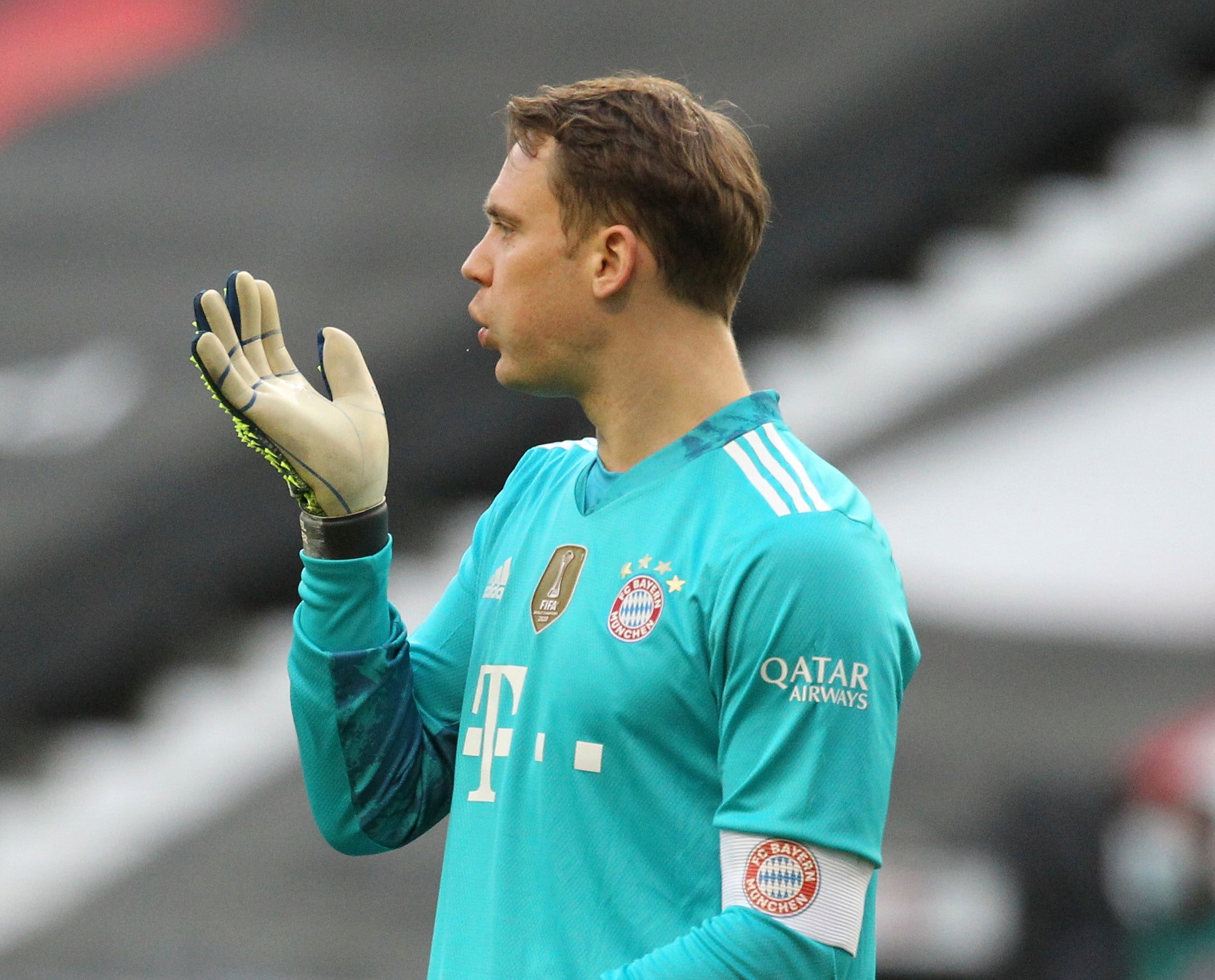Accusing footballers of hypocrisy for protesting about human rights abuses in Qatar rather misses the point
So what if these footballers are guilty of double standards? They are at least doing something to address concerns over treatment of workers ahead of next year’s World Cup

No sooner had the protests started than the backlash began. The international football teams who took the bold step of highlighting human rights abuses in Qatar ahead of next year’s World Cup finals in the Gulf, by wearing protest T-shirts ahead of qualifiers, were immediately dismissed as hypocrites, or worse.
How could Germany’s goalkeeper Manuel Neuer take part in his national team’s decision to wear shirts, which spelled out the words “Human Rights”, ahead of their game against Iceland when his employers, Bayern Munich, are sponsored by Qatar Airways, have a gift shop in Doha airport and regularly hold winter training camps in the country?
Along the line from Neuer was Ilkay Gundogan, effectively employed by the UAE in his day job as a Manchester City player and quiet about the many abuses in Abu Dhabi, but not those a few hundred miles away in Qatar.
And then there was Norway, with its vast sovereign wealth fund, which invests in supermarkets, banks and water companies in Qatar, but whose national team players took to the field urging “Human rights on and off the pitch” before they played Turkey and Gibraltar last month.
Attracting much attention – and anger – was Norwegian superstar in the making, Erling Haaland, who wore his T-shirt just a few weeks after being treated at a sports medicine hospital in Qatar, which sits right next to one of the stadiums due to be used in next year’s World Cup finals.
Why, it was argued, were the players showing concern about human rights in Qatar but not anywhere else? Where has the concern been about issues such as the plight of Palestinians?

It is the same criticism that could have been levelled at another international team when its players took to the field in protest T-shirts for a World Cup qualifier in 2017 to complain about one thing only – the aggressive actions of neighbouring nations. That team was Qatar.
The players this week may well be guilty of double standards, and the protests confirm that Qatar is a soft target – we still hear more about conditions around the football World Cup, which is more than a year and a half away from kicking off, than concerns from the sporting world about the disgraceful treatment of the Uighurs by China, even though the Winter Olympics in Beijing begin next February.
But, ultimately, so what? None of the arguments about the selective nature of current protests undermines why they are taking place. Any criticism of the players’ actions fails to address one crucial topic – in fact, the most central topic – which is the continued human rights concerns surrounding the treatment of workers in Qatar.
World Cup organisers in Doha proudly announced on Wednesday that there are just 600 days to go until the start of the tournament. That means it is more than 3,770 days since the Gulf monarchy was awarded the right to host the World Cup.
In that time, and under huge international pressure, there has been some reform by Qatar – the introduction of a minimum wage, a Wage Protection System to ensure those who have come to the country to work receive their wages, as well as attempts to end dreadful and abusive practices such as the need for workers to get their bosses’ permission to change jobs and even leave the country.
But while the speed of physical change in Qatar for the World Cup is phenomenal – the country’s landscape has been utterly transformed in readiness for 2022 – this has not been matched by the pace of labour reform.
Current events show that gains made remain fragile and a powerful domestic business class are pushing back against proposals. There is also continued concern over LGBT+ rights and treatment of women (both worthy of columns on their own) in Qatar which will increasingly come to the fore before next year.
Read more:
We should be applauding footballers – who have had little in the way of leadership from national politicians and Fifa – for taking a stand, as part of a new age of protest in sport, stretching from Colin Kaepernick through to Black Lives Matter.
Add in to the mix the current outrage over the number of workers who have died in Qatar in preparation for the World Cup, and it is clear there is plenty still to protest. A recent report revealed that 6,500 migrant workers have died in Qatar since the fateful day Sepp Blatter opened the envelope to reveal the country’s name in 2010. The report was not saying that these workers died while working on World Cup projects, though some have chosen to believe that. Qatar disputes the figure and says there have been 37 deaths linked to World Cup stadiums, the vast majority of these not linked to work.
But we know for certain that Briton Zac Cox fell to his death in a work accident at the Khalifa International Stadium in January 2017, a World Cup venue and where Liverpool won the Fifa Club World Cup in 2019. And that Anil Pasman from Nepal was run over by a water tanker working at the most southerly of the eight stadiums being used in 2022, Al Janoub, in November 2016.
Whatever the true number of deaths, these stadiums and the vast facilities that have been put in place for the World Cup are the very ones that will be used by the likes of Neuer and Haaland. So why shouldn’t these footballers protest that they will be kicking a ball in places where people may have taken their last breath?
Join our commenting forum
Join thought-provoking conversations, follow other Independent readers and see their replies
Comments
Bookmark popover
Removed from bookmarks